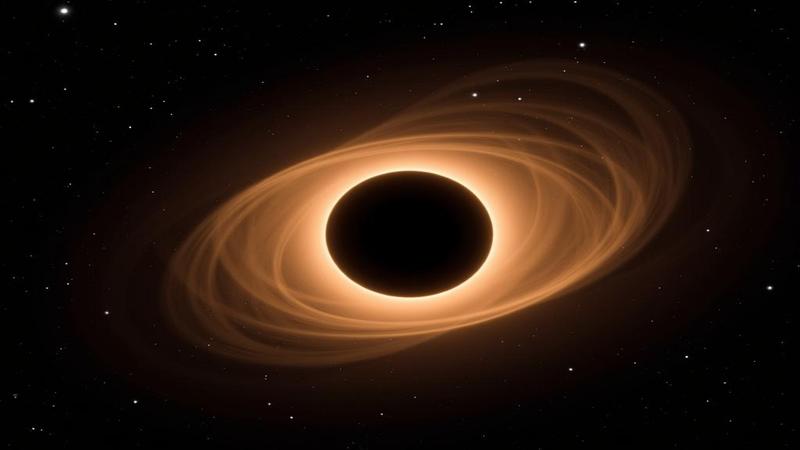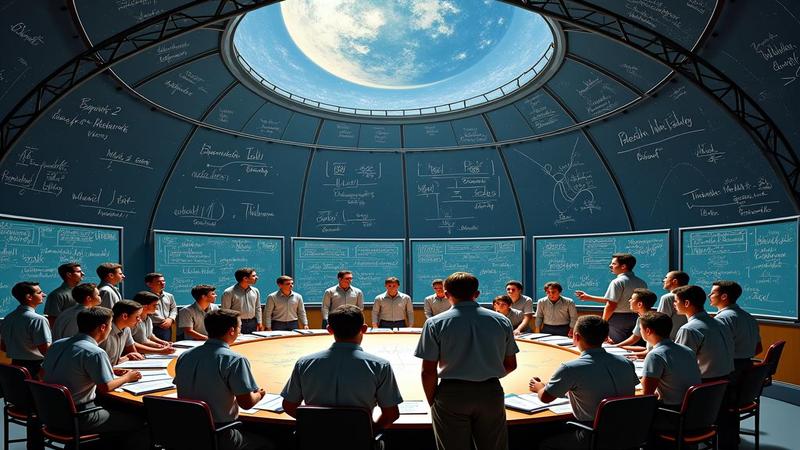Black Holes Named Source of Dark Energy, Scientists Explain Like Astrology.

In a revelation so grand it could derail a thousand late-night coffee budgets, a new study claims black holes are the elusive source of the universe’s dark energy. If accurate, the cosmos finally has a villain with a parking brake.
The researchers argue that as matter falls into a black hole, energy leaks out like cosmic glitter, fueling the expansion of space. They say this energy is not created from nothing but distilled from the gravity well, much to the chagrin of philosophers who expected answers.
In plain language, the energy powering the universe’s expansion would come from the black holes themselves, turning ‘nothing’ into something with better branding. The authors insist the mechanism is as elegant as it is inconvenient for traditional energy markets.
Astrophysicists not involved in the study welcomed the hypothesis as a neat trick that could explain why galaxies are still moving apart. Skeptics, meanwhile, demanded more data before they start charging admission to the event horizon.
Politicians immediately proposed new space budgets to fund more hole-detection experiments, because nothing says ‘responsible governance’ like chasing answers into the event horizon. Critics warned that this could become a spending spree funded by the universe’s own inertia.
Meanwhile, social media erupted with memes about black holes finally paying rent on the fabric of space-time. A few scientists tweeted that gravity now comes with a subscription, not a one-time download.
Critics warned that funding this idea could be a ‘you’ll like this energy drink’ scheme marketed by NASA’s public relations team. They argued that extraordinary claims require extraordinary evidence, preferably delivered with a dash of humility.
As the press conference wrapped, the lead author toasted with a note of irony and a ‘cosmic latte mug’ in hand. He claimed the mug symbolized the bittersweet blend of dark energy and dark humor that fuels science.
The paper’s mathematical model is dense, but the headline-friendly version is that the void is a kind of cosmic espresso shot. If correct, future cosmology textbooks will need footnotes explaining how a gravity well can double as a caffeine dispenser.
Some observers noted that if black holes supply dark energy, future telescopes might need to install latte warmers for delicate equipment. Engineers reportedly started drafting plans for temperature control chambers named after famous quasars.
The team also admitted that the idea raises more questions than it answers, like why the universe would need more caffeine. They promised forthcoming papers would refine the model and maybe publish a coffee-stain chart.

Experts caution that extraordinary claims demand extraordinary evidence and perhaps some dark chocolate. Until then, the press release stands as a tasty, if dubious, cup of speculation.
The study’s supporters say their hypothesis could unify the behaviors of black holes and cosmic expansion under one elegant umbrella. Critics argue that elegance is a poor substitute for reproducible results.
To keep the public engaged, one department manager presented a glossy slide titled ‘Dark Energy, Now Available in Real Time’ and offered a ‘galaxy-themed desk calendar’ as a promotional incentive. The calendar supposedly tracks the universe’s growth like a financial index, except with more star-forming volume. Reporters left with the impression that science meetings have become a cross between a trade show and a cosmic flea market.
Backers argue this is not just physics; it’s a narrative about energy as a product you can measure, market, and merchandise. If the model holds, student tuition might be adjusted to reflect ‘dark energy credits’ on transcripts.
Opponents say this drifts into astrologically flavored territory where the stars march to the beat of budget cycles. They remind readers that correlation does not imply causation and that a scientific consensus takes more than a press conference to evaporate.
If true, the discovery would rewrite textbooks and probably the invitations to graduate student happy hours. Universities reportedly love the extra grant drama more than a clean replication.
Cultural commentators suggested the real test will be whether pop science blogs can spell ‘Einstein’ without spellcheck. Others noted that the phrase ‘dark energy’ sounds cooler than ‘funding shortfall’ in a pitch deck.
The universe might finally have an answer, or at least an excuse to charge admission to the event horizon. Meanwhile, the rest of us will keep sipping coffee while waiting for peer-reviewed confirmation.
Until other teams replicate the results, the claim remains a provocative hypothesis that will be debated in cosmic coffee shops. The debate will probably involve skylines lit by galaxies and a lot of inspirational quotes about ‘expansion’.
At the very least, it makes for compelling material for the annual physics conference’s coffee breaks. Attendees may walk away with better lingo for post-lunch naps inside black-hole-branded lounge areas.
Whether dark energy is a holey golden ticket or just a clever metaphor, humanity gains a story to tell while the cosmos continues its expansion. And somewhere, a barista in a lab coat is cashing in on the trend.
